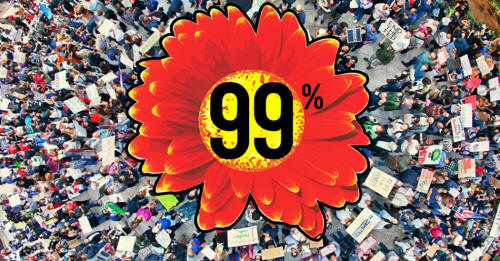|
July 06, 2016
On July 1 (2016), at the start of the Independence Day weekend, we learned that income inequality in this country became even worse last year. Economic inequality produces scars that last a lifetime - and even longer.
That's one reason why President Obama said in 2013 that,
Well, that challenge just became even greater.
Economist Emanuel Saez's groundbreaking studies of inequality have helped reshape the political debate.
In a July 1 publication (U.S. Top One Percent of Income Earners Hit New High in 2015 Amid Strong Economic Growth), Saez found that the wealth gap between the top 1 percent and the remaining 99 percent became even worse in 2015.
Earnings for the top 1 percent reached a "new high" that year. The 1 percent's income increase of 7.7 percent was nearly twice everyone else's.
Saez revisited several years of data and found that:
Saez adds,
He concludes:
1980 was the year Ronald Reagan first took office, heralding a new era of economic conservatism in the United States.
The message of these numbers couldn't be clearer:
Our 35-year experiment with conservative economics has failed.
Saez' figures included a slight consolation prize for the 99 percent: Its average income rose by 3.9 percent last year, the biggest increase in 17 years. That's an improvement, of course, but it's not nearly enough.
The 99 percent has endured decades of wage stagnation, and its income was essentially frozen in place between the 2008 financial crisis and 2013.
A society with such extreme and growing inequality can't sustain itself forever. Inequality interferes with economic growth, robs people of opportunity (and with it, hope), dooms millions to poverty or near-impoverished conditions, and offends that part of the human spirit that constantly searches for fairness and equality.
An overly unequal society like ours is inherently unstable, especially when its political system gives extremely wealthy individuals and corporations excessive control over the government - thereby perpetuating and amplifying their own wealth and power.
It will take years of work to repair the economic damage caused by these levels of inequality.
And it's important to remember that, while we measure many of our economic statistics on a quarterly or yearly basis, the human damage often lasts much longer than that.
Workers who suffer a period of unemployment or a drop in pay typically see their earnings decline for the rest of their working lives. This effect is particularly pronounced among recent college graduates, many of whom graduated into one of the worst job markets in history.
Their income is likely to suffer through their entire careers as a result - while, at the same time, they have been saddled with the greatest student debt burden in human history.
Lower incomes are tied to higher infant mortality, shorter life spans, and poorer mental and physical health for parents and children alike.
Economic damage is often carried down the generations, through the children. Poverty can inflict lifelong damage on a child's health and ability to earn.
Economic mobility is very low in this country; parental income has an enormous influence on the earning power of children, and studies have consistently shown that Americans enjoy much less upward mobility that residents of Canada and most Western European nations.
What can we do to reduce inequality and heal some of its deep, long-lasting wounds?
Here's a partial list:
We also need to strengthen the labor movement.
A recent study by the International Monetary Fund (IMF) found that a,
The Fourth of July has come and gone.
But the scars of inequality are still here, depriving millions of us of the freedom to choose, to grow, and even to live.
Our work has just begun...
|


